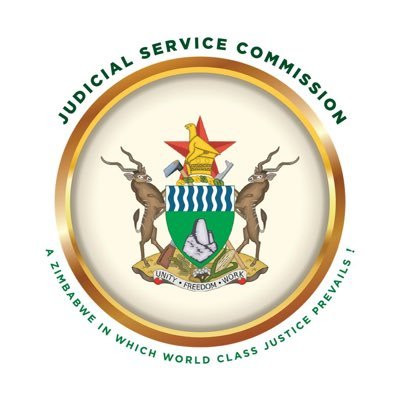Source: Current system of appointing judges problematic: Govt –Newsday Zimbabwe

GOVERNMENT is considering reverting back to an old system where the President had the sole responsibility to appoint judges arguing that the current system is ‘problematic.’
According to the 2013 Constitution, the Judicial Service Commission (JSC) conducts public interviews for the selection of judges.
A list of nominees is then sent to the President after the interviews. The President may assent to the names or ask the JSC to submit a fresh roster.
However, speaking on the sidelines of the swearing-in of a tribunal to investigate Justice Martin Makonese’s suitability to remain in office, Justice Ministry permanent secretary Virginia Mabhiza said the current process of recruiting judges was tricky.
“We are very worried about the frequency of the tribunals because what it shows is that something needs to be done to improve the integrity of the judges,” Mabhiza said.
“You may recall or you may be aware that to date we have seen four judges leaving office through tribunals. My opinion is that perhaps in the appointment processes, you might be aware that in the past the President would appoint judges after considering a number of factors including integrity, honesty and all other virtues.
“Unfortunately, the new system of interviews seems to be bringing on board people who lack integrity.”
President Emmerson Mnangagwa has so far fired four judges for gross misconduct and incompetence. These are Francis Bere, Erica Ndewere, Thompson James Mabhikwa and Edith Mushore.
Justice Makonese quit this week immediately after Mnangagwa had sworn in the tribunal chaired by retired judge Justice Simbi Mubako to investigate his conduct.
Mushore, who was fired last year, had ruled that Luke Malaba had ceased to be Chief Justice upon reaching the age of mandatory retirement in 2022.
“I am not saying that they lack integrity but one can make that conclusion as you can see the frequency at which judges are coming for tribunals. This is what is happening and it is quite worrying,” Mabhzia added.
“The old process was more thorough in the sense that most of the judges were tried and tested. Most of them were senior civil servants, having served with integrity and with a lot of knowledge on the subject matter. So I think it was more useful and serving the purpose.”
In 2021, human rights organisations petitioned United Nations Special Rapporteur, Diego Garcia-Sayan accusing Mnangagwa of undermining judicial independence.
The organisations — Robert F Kennedy Human Rights, the International Bar Association’s Human Rights Institute and Zimbabwe Lawyers for Human Rights — said Mnangagwa was amending the Constitution to give himself power to control the Judiciary.
